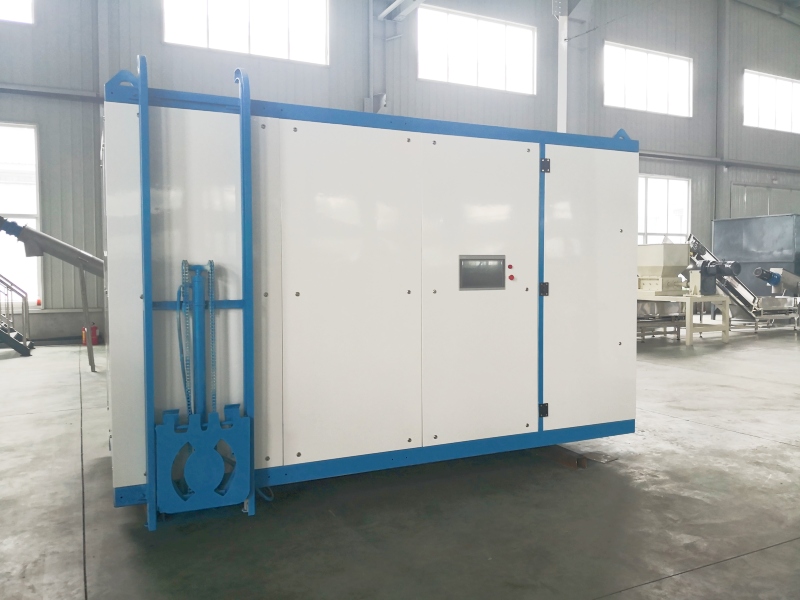
In the contemporary landscape of increasing environmental awareness and sustainable practices, the management of food waste has become a critical concern. One promising technology that addresses this issue is the Waste Food Dewatering Machine. This innovative equipment plays a pivotal role in reducing the volume of food waste, minimizing environmental impact, and unlocking potential economic benefits.
Overview:
The Waste Food Dewatering Machine is designed to efficiently remove excess water content from food waste, significantly reducing its volume and weight. This process not only facilitates easier handling and transportation but also mitigates the production of harmful greenhouse gases associated with decomposing organic matter in landfills.
Key Features:
High Dewatering Efficiency: The machine employs advanced dewatering techniques to extract a substantial amount of water from the food waste, leaving behind a more manageable and concentrated residue.
Versatility: Capable of processing a wide range of food waste, including fruits, vegetables, and leftovers from kitchens and food processing units, the machine proves to be versatile in various settings.
Compact Design: The compact and space-efficient design makes it suitable for both commercial and residential applications, allowing businesses and households to integrate it seamlessly into their waste management systems.
Energy-Efficient Operation: Many modern waste food dewatering machines incorporate energy-efficient features, such as low-power consumption and automatic shut-off systems, making them environmentally friendly and cost-effective.
Benefits:
Reduced Transportation Costs: By significantly reducing the weight and volume of food waste, transportation costs are lowered, contributing to more cost-effective waste management practices.
Lower Environmental Impact: The dewatering process minimizes the environmental impact of food waste by decreasing the emission of methane gas from landfills, a potent greenhouse gas that contributes to climate change.
Resource Recovery: The concentrated residue produced by the machine can be further processed for resource recovery, such as composting or conversion into bioenergy, turning waste into valuable resources.
Compliance with Regulations: Utilizing a waste food dewatering machine aligns with waste management regulations and environmental policies, positioning businesses and communities as responsible stewards of the environment.
Conclusion:
In conclusion, waste food dewatering machines present a promising solution to the growing challenges of food waste management. Their efficient water extraction capabilities, compact design, and environmental benefits make them a valuable asset in promoting sustainability and responsible waste disposal practices. As technology continues to evolve, these machines are likely to play an increasingly crucial role in achieving a more sustainable and circular economy.




If your company wants to establish a business relationship with us, please briefly describe the cooperation intention and send an email to:chuantaiscrewpress@gmail.com























































































![[list:title]](/static/upload/image/20240528/1716877114510915.jpg)